24 Sep Understanding Skin Aging
Aging is a natural part of life, and skin aging is one of the most visible signs of the passage of time. While it’s impossible to stop the clock completely, there are many ways to slow down the signs of skin aging and keep your skin looking healthy and youthful for longer. We’ll explore the causes of skin aging, common signs to watch for, and effective strategies to prevent and treat the effects of time on your skin.
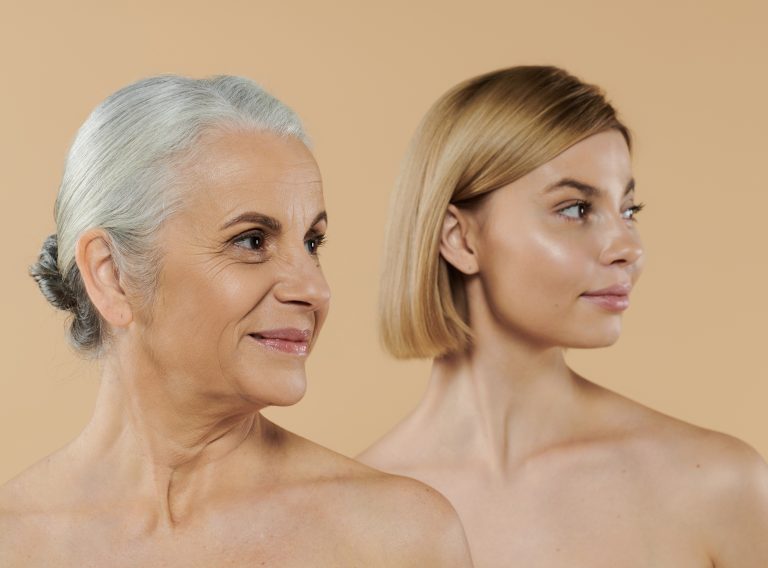
1. Causes of Skin Aging
- Intrinsic Aging : This is the natural aging process that happens as we get older. Over time, our skin produces less collagen, elastin, and hyaluronic acid, which are essential for keeping skin firm, plump, and youthful. The result is thinner skin, fine lines, and reduced elasticity.
- Extrinsic Aging : Unlike intrinsic aging, this type of aging is caused by environmental factors and lifestyle choices. The primary culprit ? Sun exposure. Ultraviolet (UV) rays break down collagen and elastin fibers in the skin, leading to wrinkles, sagging, and discoloration. Other external factors, like pollution, smoking, and poor diet, also contribute to premature skin aging.
2. Common Signs of Skin Aging
As we age, several changes start to appear on our skin:
- Wrinkles and Fine Lines : The breakdown of collagen and elastin leads to the formation of wrinkles, especially in areas where the skin is most expressive—around the eyes, mouth, and forehead.
- Loss of Firmness : With age, the skin loses its elasticity and firmness, resulting in sagging, especially around the jawline, cheeks, and neck.
- Dryness and Thinning : Aging skin becomes thinner and drier as it loses moisture. This can make wrinkles and fine lines more noticeable.
- Age Spots and Hyperpigmentation : Over time, sun damage accumulates and shows up as dark spots or uneven skin tone, known as age spots or liver spots.
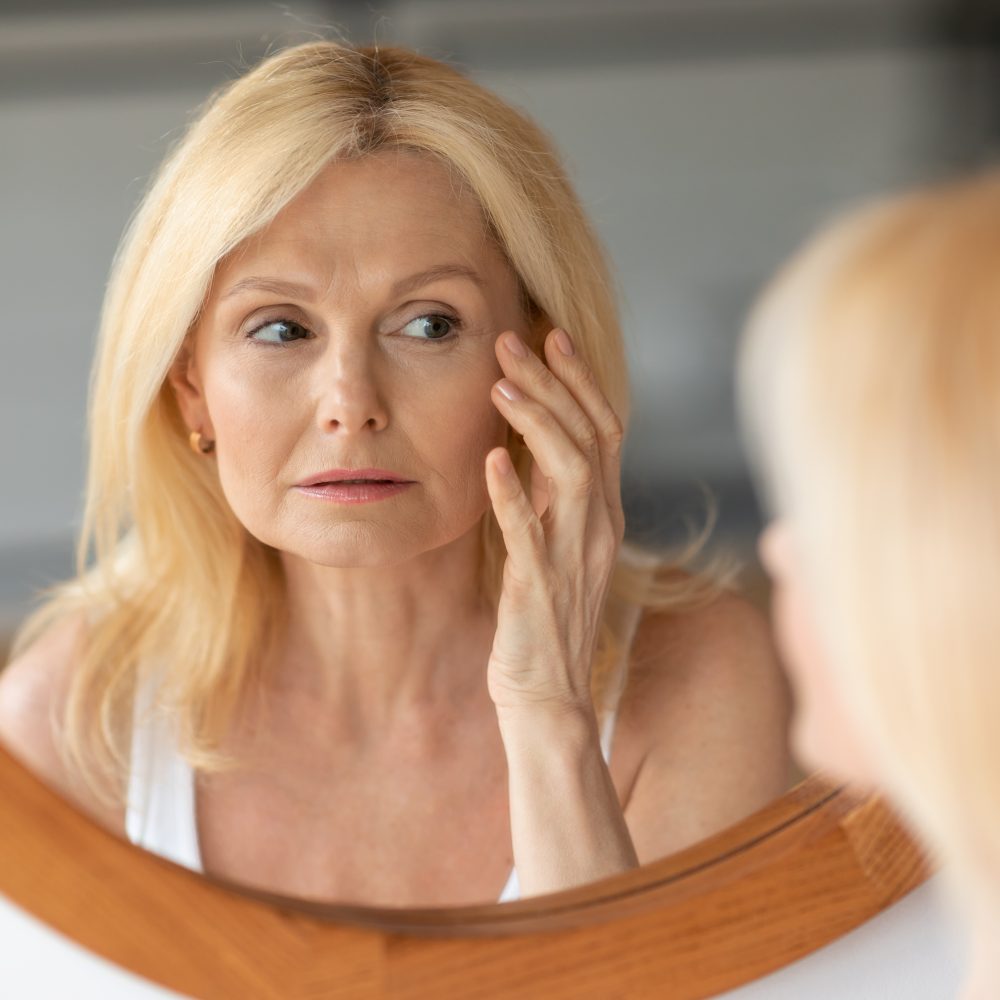
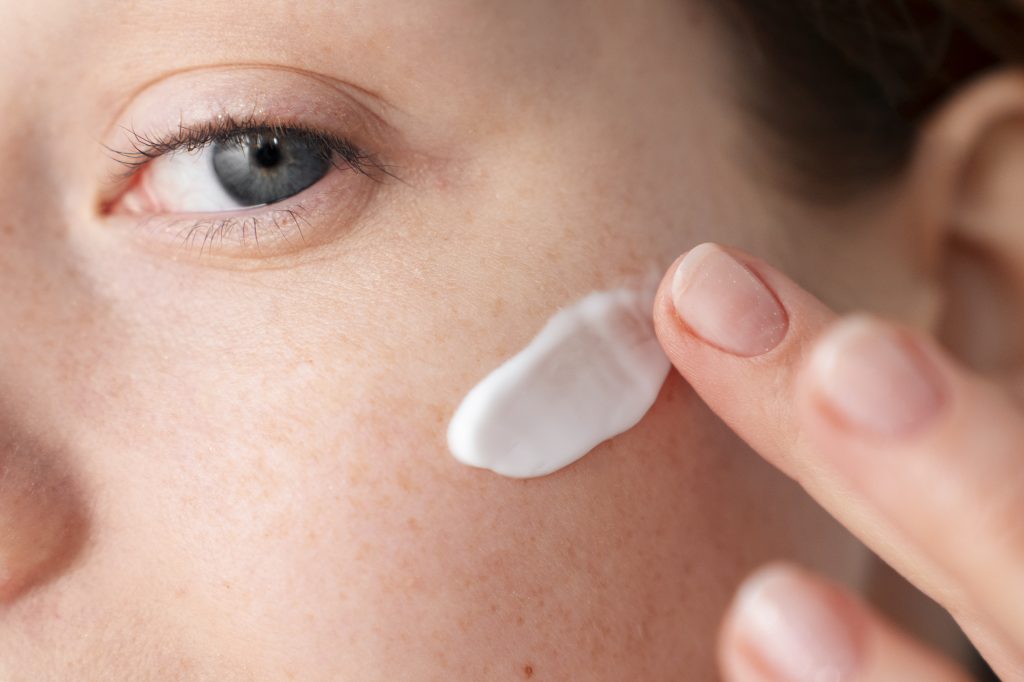
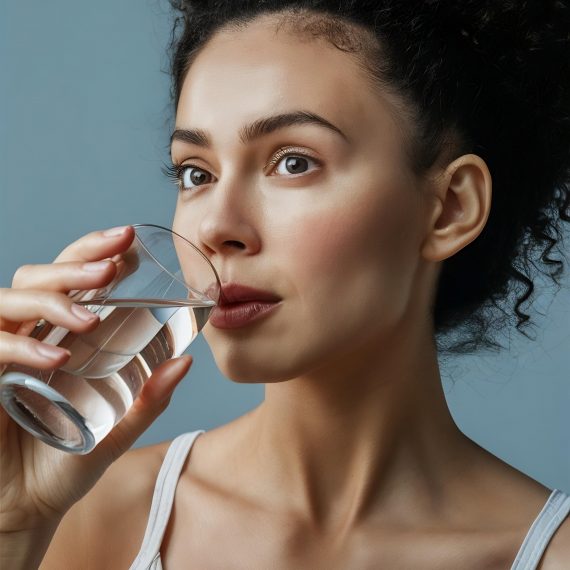
3. Prevention Strategies for Skin Aging
While we can’t stop the aging process, we can take steps to slow it down:
- Daily Sunscreen : One of the most effective ways to prevent premature aging is by wearing sunscreen every day, rain or shine. UV rays are one of the biggest contributors to wrinkles, dark spots, and sagging, so applying SPF can protect your skin long-term.
- Healthy Skincare Routine : Incorporate products rich in antioxidants, such as Vitamin C, which helps fight free radical damage, and retinoids, which stimulate collagen production. A good moisturizer can also help maintain hydration and support the skin barrier.
- Hydration and Moisturizing : Proper hydration, both internally and externally, is key to keeping skin looking plump and youthful. Drink plenty of water and use serums and moisturizers to lock in moisture.
- Balanced Diet and Hydration : Eating a diet rich in antioxidants (think fruits and veggies), omega-3 fatty acids, and vitamins can support skin health from the inside out. Staying hydrated helps flush out toxins and keep skin looking fresh.
4. Best Treatments for Aging Skin
If you’re noticing signs of aging and want to restore your skin’s youthful appearance, there are a variety of treatment options available:
- Non-invasive Procedures : Laser treatments, chemical peels, and microneedling can help improve skin texture, reduce fine lines, and promote collagen production without surgery. These treatments stimulate the skin’s natural repair processes and can produce a more radiant, youthful complexion.
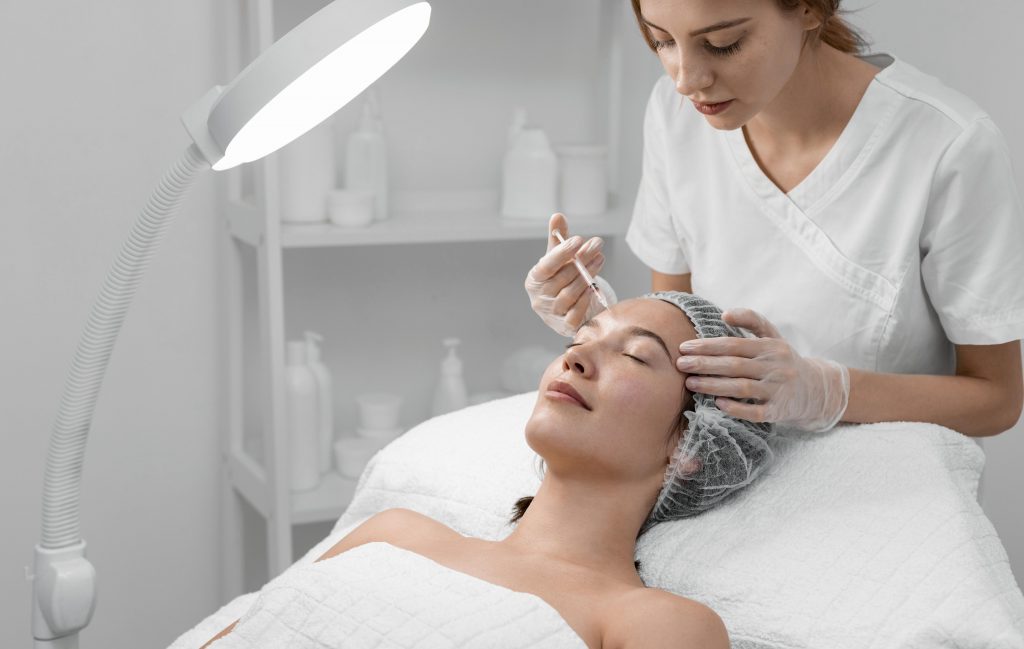
- Injectables : Anti-wrinkle injections and dermal fillers are popular options for reducing wrinkles and restoring lost volume in the face. Botox works by relaxing the muscles that cause wrinkles, while fillers can add volume to areas like the cheeks and lips for a smoother appearance.
- Advanced Skincare Products : Retinol, peptides, and growth factors are key ingredients in many advanced anti-aging products. Retinol, a form of Vitamin A, promotes cell turnover and boosts collagen, while peptides and growth factors help repair and strengthen skin cells.
- Professional Consultations : For the best results, consider consulting with a dermatologist or skincare professional. They can assess your skin type and concerns to recommend personalized treatments that target specific signs of aging
4. Debunking Myths About Skin Aging
There’s no shortage of myths when it comes to anti-aging, and it’s important to separate fact from fiction:
Myth #1: Anti-aging products work immediately: While some products may give your skin a temporary boost, true results from anti-aging skincare typically take time. Consistency is key to seeing long-term improvements.
Myth #2: Only older people need anti-aging care: Prevention is better than cure! Starting a skincare routine in your 20s or 30s, especially one that includes sunscreen and antioxidants, can help delay the visible signs of aging.
Myth #3: Expensive treatments are always better: It’s easy to assume that higher price tags mean better results, but that’s not always true. The effectiveness of a product or treatment depends more on the ingredients and techniques used than on cost alone.
Skin aging is inevitable, but that doesn’t mean we can’t take control of how we age. Each person ages differently. A lifetime of exposure to the sun, weather, and other environmental factors will impact the skin in a variety of ways. Practicing good skincare habits at every stage of life is essential to keep skin looking and feeling great at any age. Whether you want to create a preventive anti-aging skincare routine or you’re ready to discuss more advanced anti-aging treatments, don’t hesitate to schedule a free consultation with K-beauty clinic.


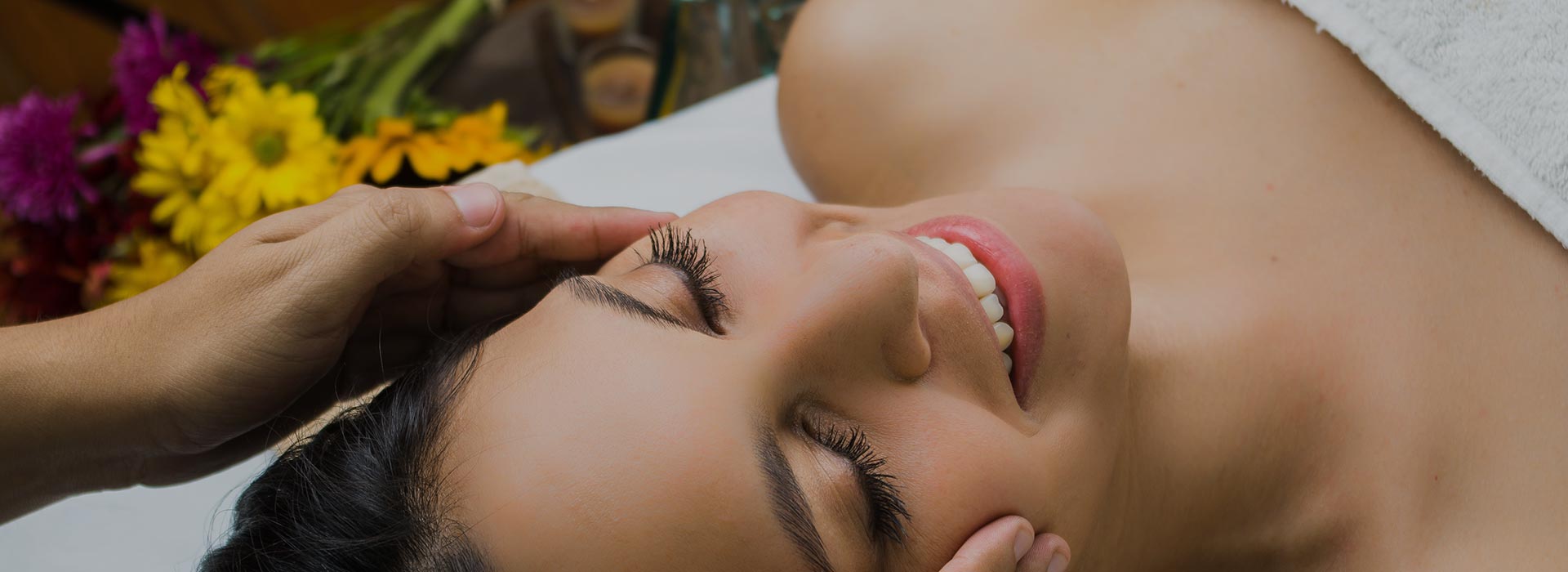
Sorry, the comment form is closed at this time.